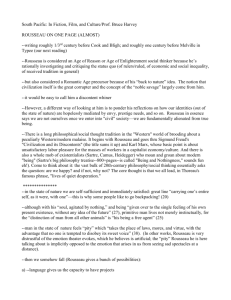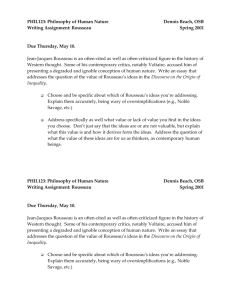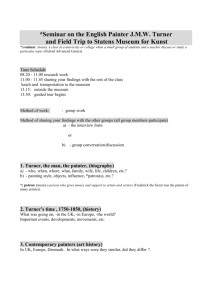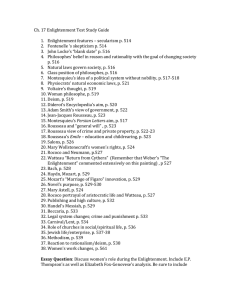STUDY QUESTIONS FOR CC.111 Weeks XI and XII ROUSSEAU
advertisement
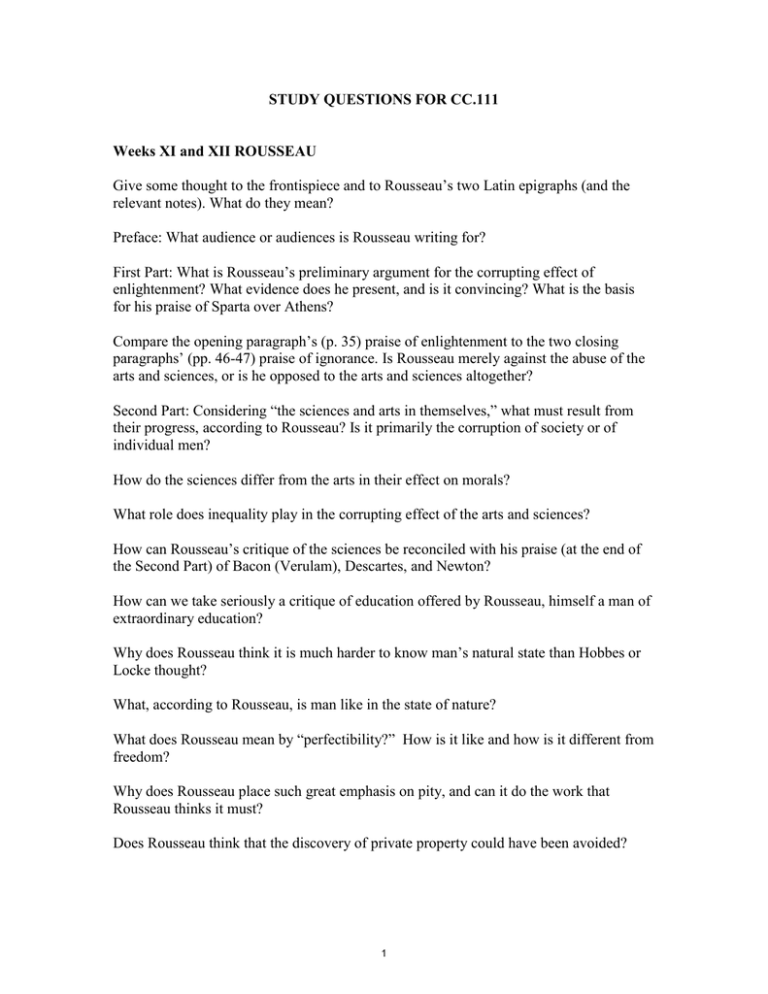
STUDY QUESTIONS FOR CC.111 Weeks XI and XII ROUSSEAU Give some thought to the frontispiece and to Rousseau’s two Latin epigraphs (and the relevant notes). What do they mean? Preface: What audience or audiences is Rousseau writing for? First Part: What is Rousseau’s preliminary argument for the corrupting effect of enlightenment? What evidence does he present, and is it convincing? What is the basis for his praise of Sparta over Athens? Compare the opening paragraph’s (p. 35) praise of enlightenment to the two closing paragraphs’ (pp. 46-47) praise of ignorance. Is Rousseau merely against the abuse of the arts and sciences, or is he opposed to the arts and sciences altogether? Second Part: Considering “the sciences and arts in themselves,” what must result from their progress, according to Rousseau? Is it primarily the corruption of society or of individual men? How do the sciences differ from the arts in their effect on morals? What role does inequality play in the corrupting effect of the arts and sciences? How can Rousseau’s critique of the sciences be reconciled with his praise (at the end of the Second Part) of Bacon (Verulam), Descartes, and Newton? How can we take seriously a critique of education offered by Rousseau, himself a man of extraordinary education? Why does Rousseau think it is much harder to know man’s natural state than Hobbes or Locke thought? What, according to Rousseau, is man like in the state of nature? What does Rousseau mean by “perfectibility?” How is it like and how is it different from freedom? Why does Rousseau place such great emphasis on pity, and can it do the work that Rousseau thinks it must? Does Rousseau think that the discovery of private property could have been avoided? 1 To what extent are human beings’ earliest relations with each other a problem according to Rousseau? What is Rousseau’s judgment of the savage society and why? What is amour-propre, or vanity, and why or to what extent is it a problem? How, according to Rousseau, can society come into being on a legitimate basis? Is the decline of civil society into despotism inevitable, according to Rousseau? How, according to Rousseau, does a city like Sparta avoid or manage the evils of civil society? 2 MIT OpenCourseWare http://ocw.mit.edu CC.111 Modern Conceptions of Freedom Spring 2013 For information about citing these materials or our Terms of Use, visit: http://ocw.mit.edu/terms.


